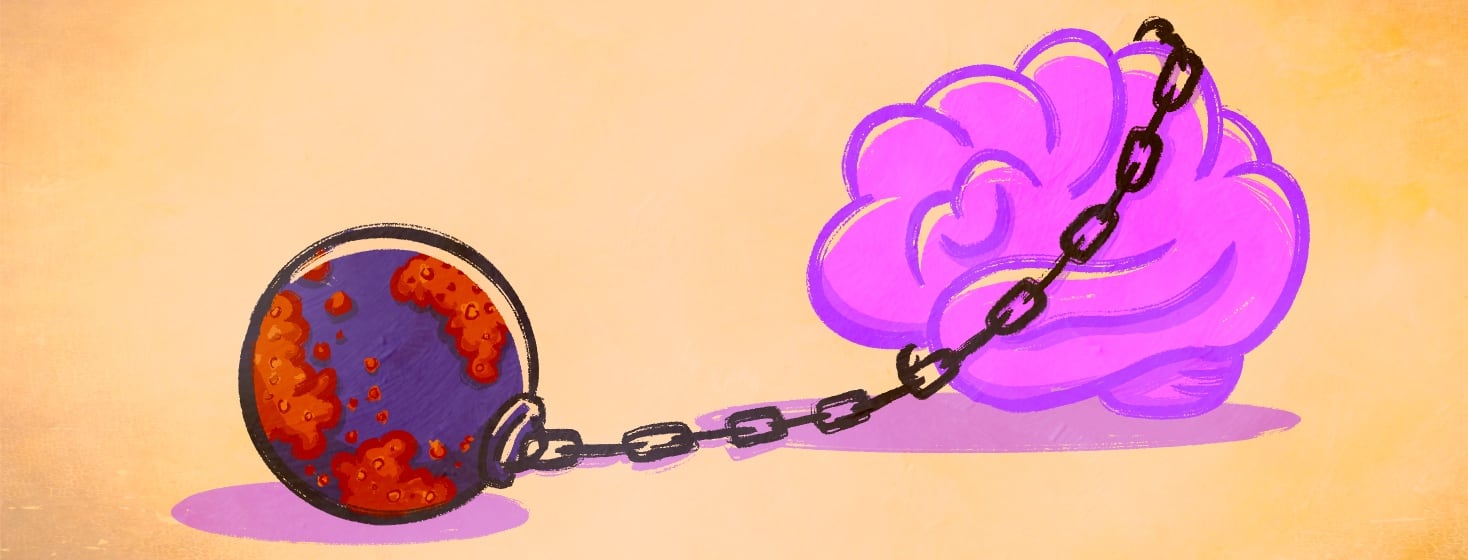What is Psychodermatology?
Psychodermatology is the study of the connection between the skin and the mind. Understanding and addressing the link between mental health and skin disorders can help to better manage both. It can also improve the quality of life for people living with both types of conditions.1
Types of “skin and mind” disorders
Psychophysiologic disorders are conditions that are made worse by emotional stress. This includes skin conditions like eczema (atopic dermatitis), psoriasis, and acne. Studies have shown that stress can cause the symptoms of these disorders to develop.1
Mental disorders with skin symptoms are types of mental disorders that can lead to self-inflicted injuries to the skin. These injuries result from an urge to scratch, pull out hair (including eyelashes and eyebrow hairs), or cause burns to the skin with cigarettes or chemicals.2
Understanding the impact
Self-inflicted injuries are sometimes caused by false belief (delusions) that insects, parasites, or organisms are on or under the surface of the skin. Self-inflicted injuries can happen with mental or physical disorders including:2
- Schizophrenia
- Psychotic depression
- Psychosis drug withdrawal
- Vitamin B-12 deficiency
- Multiple sclerosis
- Brain injuries
Skin disorders with mental symptoms result from skin conditions that lead to mental problems. Physical symptoms seen in skin conditions can lead to severe emotional distress, including decreased self-esteem, anxiety, depression, and withdrawal from social situations. These issues can develop from the symptoms caused by skin conditions like acne, skin cancer, hidradenitis suppurativa (HS), psoriasis, and atopic dermatitis.2
Diagnosis and treatment
The diagnosis of skin and mind conditions requires a full exam by your doctor. Your doctor will look at your social stressors, living situation, and work. These are used to look for possible links between the symptoms seen on the skin and mental or emotional interactions.1
The treatment plan for these conditions requires a care team approach to help manage both the symptoms on the skin and any mental health symptoms.
Some people may resist referrals for help with mental symptoms because of the stigma that often surrounds seeing a mental health doctor or therapist. It is important to remember that your mental health is just as important as your physical health, especially since they are closely linked.2
Treatment options can include therapy. Therapy may be used to help with coping with social stressors, as well as with the added stress of the symptoms. In some cases, drugs might be needed to help reduce anxiety or symptoms of depression. If your skin condition is caused by delusions, antipsychotic drugs may be prescribed.2
Could this help with your skin condition?
All parts of the human body are connected. If you have symptoms that are resistant to treatment or permanent, taking time to look at how this affects your mental health could help you to find connections between physical and mental symptoms.
Learning to cope with stress in your life may help you to better live with your symptoms and even reduce them. Discuss any symptoms and stressors you have with your doctor. Together, you can explore treatment options that could help improve both your skin and your mental health.

Join the conversation